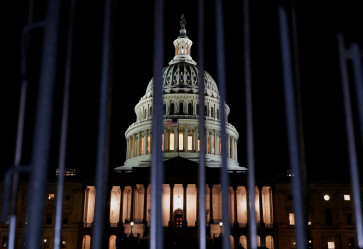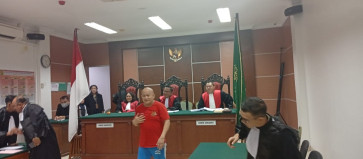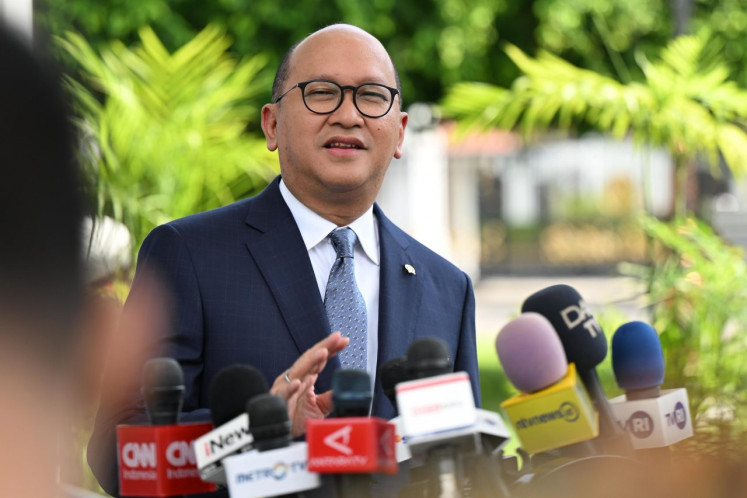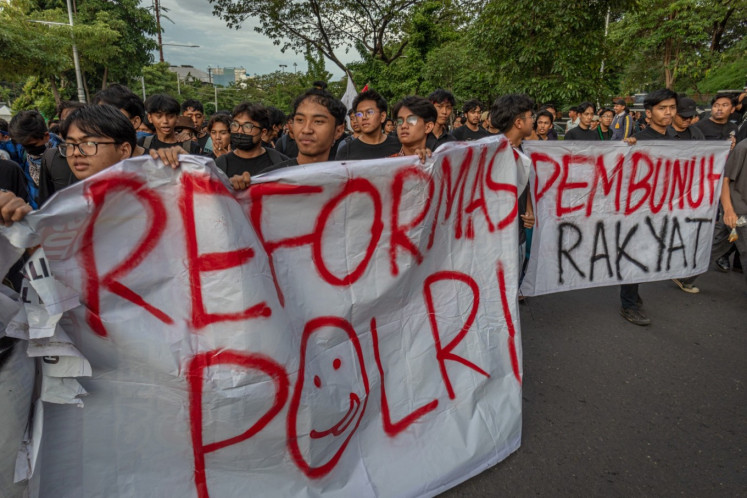Popular Reads
Top Results
Can't find what you're looking for?
View all search resultsPopular Reads
Top Results
Can't find what you're looking for?
View all search resultsCity gets more assistance from Cipto hospital, UI
The Jakarta administration is intensifying its cooperation with state-run Cipto Mangunkusumo General Hospital (RSCM) and the University of Indonesiaâs Medical School (FKUI) to improve the Jakarta Health Program
Change text size
Gift Premium Articles
to Anyone
T
he Jakarta administration is intensifying its cooperation with state-run Cipto Mangunkusumo General Hospital (RSCM) and the University of Indonesia's Medical School (FKUI) to improve the Jakarta Health Program.
Acting Jakarta governor Basuki 'Ahok' Tjahaja Purnama said at City Hall on Thursday that both FKUI and RSCM would assist the city administration in several aspects. These aspects include providing specialists to community health centers, known as puskesmas, providing neonatal intensive care units (NICUs) and pediatric intensive care units (PICUs) to private hospitals and upgrading 18 puskesmas into Type-D hospitals, allowing the puskesmas to take inpatients.
Ahok said the two institutions would also help train doctors and specialists in regional hospitals, so that standards would be similar to those at RSCM.
'The regional hospitals with adequate doctors and facilities will accept patients from RSCM should the hospital be full,' he said, adding that RSCM, as a national hospital, was often overwhelmed by patient numbers.
Ahok said the city administration would increase the premium-package tariff of the national health insurance (JKN) program, through the Indonesia Case Based Groups (INA-CBG) scheme, paid to private hospitals, so more of them would join the program.
Jakarta Health Agency head Dien Emmawati said, after meeting with the representatives of the institutions, that RSCM and FKUI had been deploying their specialists to puskesmas and this had reduced the number of referrals to hospitals.
Dien said most puskesmas at the district level in West Jakarta and North Jakarta, which had already received at least two specialists ' pediatricians and internists ' had significantly decreased their referral numbers to hospitals.
'The decline is quite significant. It was 14 percent during the first year of the KJS [Jakarta Health program] implementation and it has decreased to 4 percent now,'she said.
Dien said FKUI would continue deploying more specialists to other puskesmas, which did not yet have specialists.
The city currently has 15,148 general practitioners but only 5,104 specialists and 674 dentistry specialists.
The agency head said both institutions would also help regional hospitals to upgrade their standards.
She said that specialists in RSCM had agreed to transfer knowledge to specialists in private hospitals, especially regarding the NICUs and PICUs. The shortage of NICUs in hospitals in the capital city has been cited in infant-mortality cases that have occurred in the city.
One of the more prominent cases was the death of baby Dera Nur Anggaraini in February. Dera's father visited 10 hospitals across the capital but none was able to admit the baby because they either had no NICU or their units were full.
Dien said the RSCM and FKUI would also help the city administration in upgrading 18 of the city's puskesmas to Type-D hospitals.
Type-D hospitals are generally equipped with at least 40 rooms for third-class inpatient treatment for minor illnesses such as diarrhea, typhoid and scarlet fever.
According to Dien, only 29 of the city's puskesmas are currently equivalent to type-D hospitals.
Dien added that the city administration was also preparing to buy the privately owned Sumber Waras Hospital in Grogol, West Jakarta, to turn it into a cardiovascular hospital.
'I am now discussing with Bapedda [the Jakarta Development Planning Board] about the plan,' she said, adding that the city would allocate Rp 1.5 trillion (US$126 million) to acquire the hospital.










